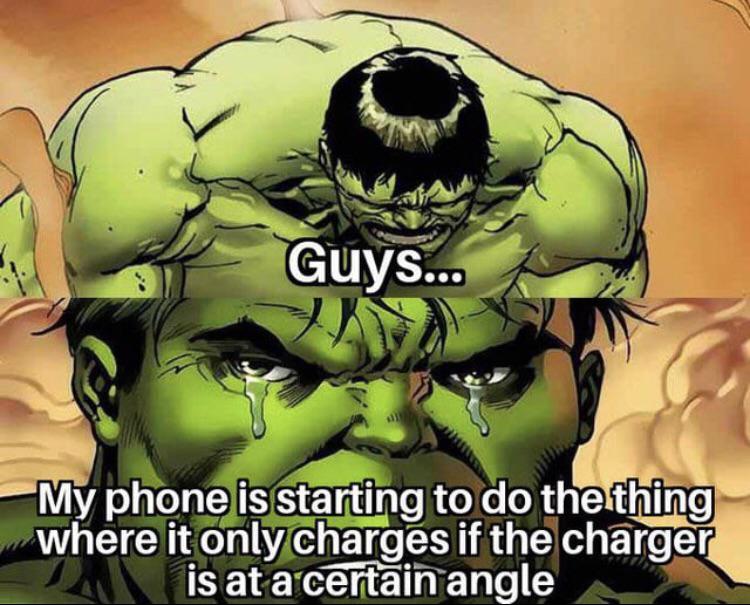this post was submitted on 03 Oct 2024
861 points (97.4% liked)
Funny: Home of the Haha
5742 readers
999 users here now
Welcome to /c/funny, a place for all your humorous and amusing content.
Looking for mods! Send an application to Stamets!
Our Rules:
-
Keep it civil. We're all people here. Be respectful to one another.
-
No sexism, racism, homophobia, transphobia or any other flavor of bigotry. I should not need to explain this one.
-
Try not to repost anything posted within the past month. Beyond that, go for it. Not everyone is on every site all the time.
Other Communities:
-
/c/[email protected] - Star Trek chat, memes and shitposts
-
/c/[email protected] - General memes
founded 1 year ago
MODERATORS
you are viewing a single comment's thread
view the rest of the comments
view the rest of the comments

I can only offer you my experience-based evidence, but three magnetic chargers I've used have all made my phone significantly hotter then charging it at the equivalent speed with a cable.
This has been true across 6 Android devices. Two from Google. Four from Samsung. However, I will also say that because of this trend, I stopped using wireless chargers about a year and a half ago, so it's quite possible they might have improved since then.
Yes, the tech has gotten a lot better. 6 phones over about 12 years (rough length of time since debut of inductive charging in smartphones) averages to about 2 years per phone. If you weren't getting the flagship phone each year that lifetime would be shorter. That was comparable to the lifetime of each over my phone's during that same time, none of which had wireless charging. The phone I have now is the first I've had to use inductive charging and it has already lasted twice as long as any of the others and shows now signs of deterioration.
So your anecdotal evidence trumps everyone elses, as well as actual knowledge of the chemistry involved?